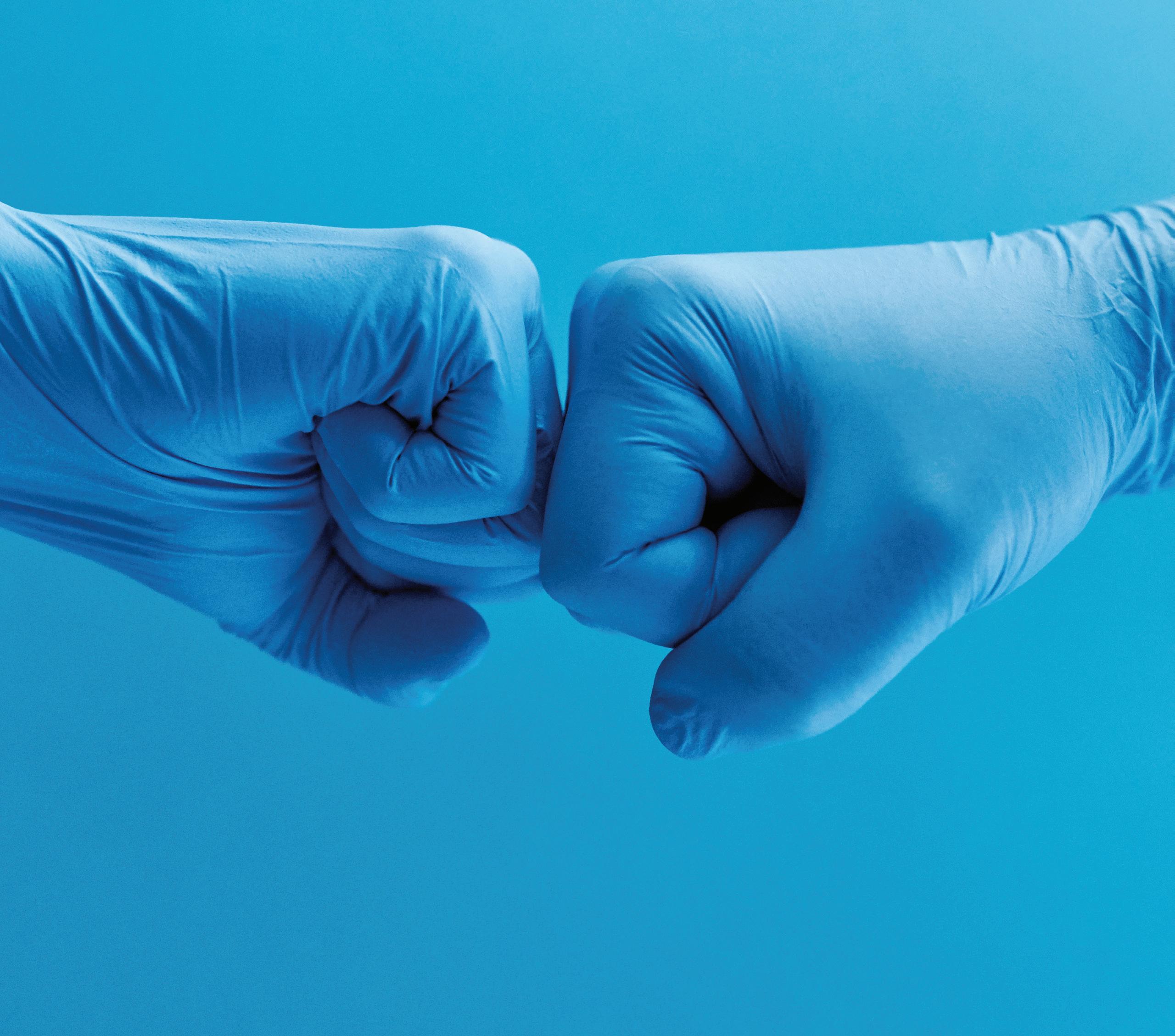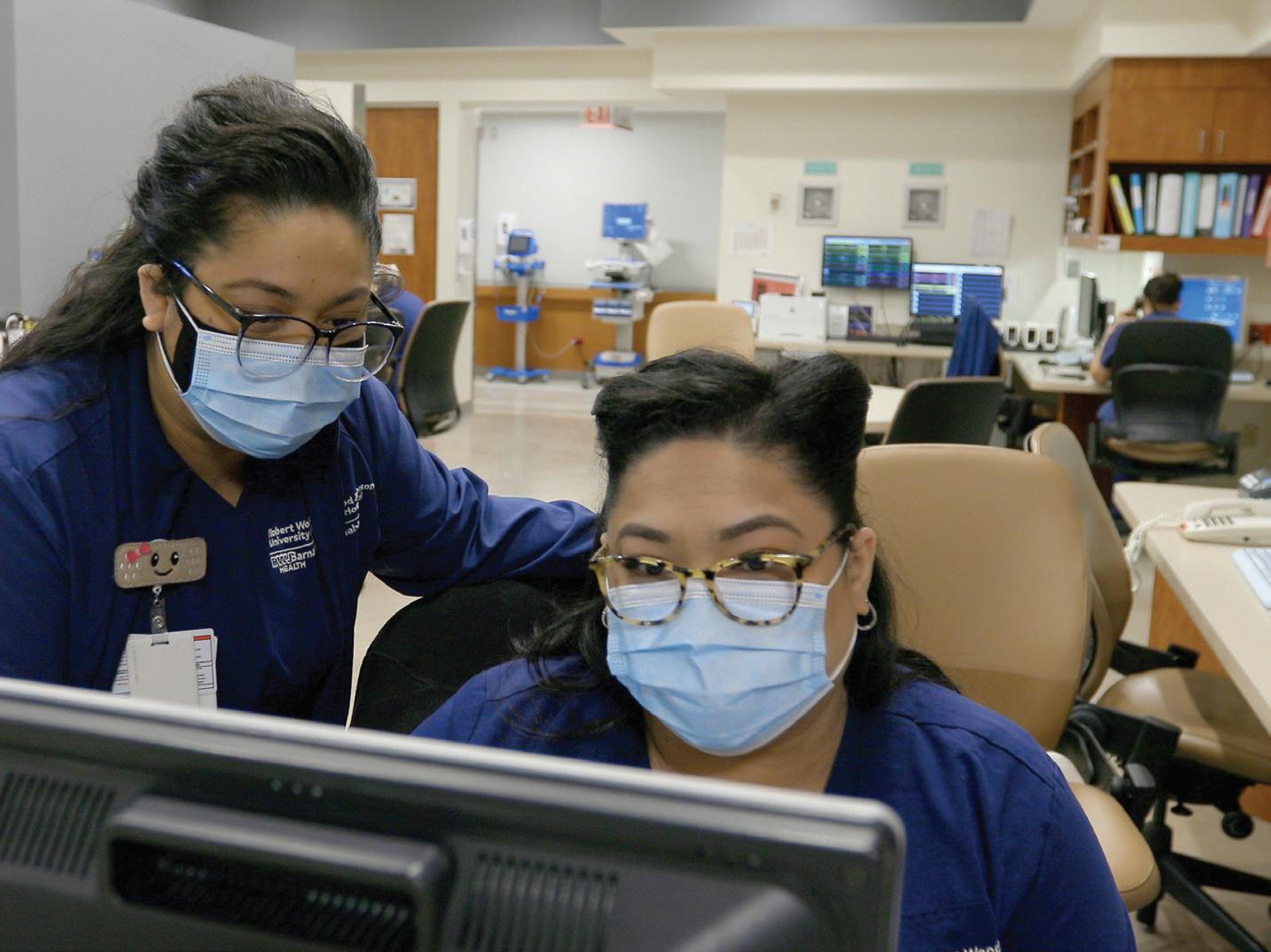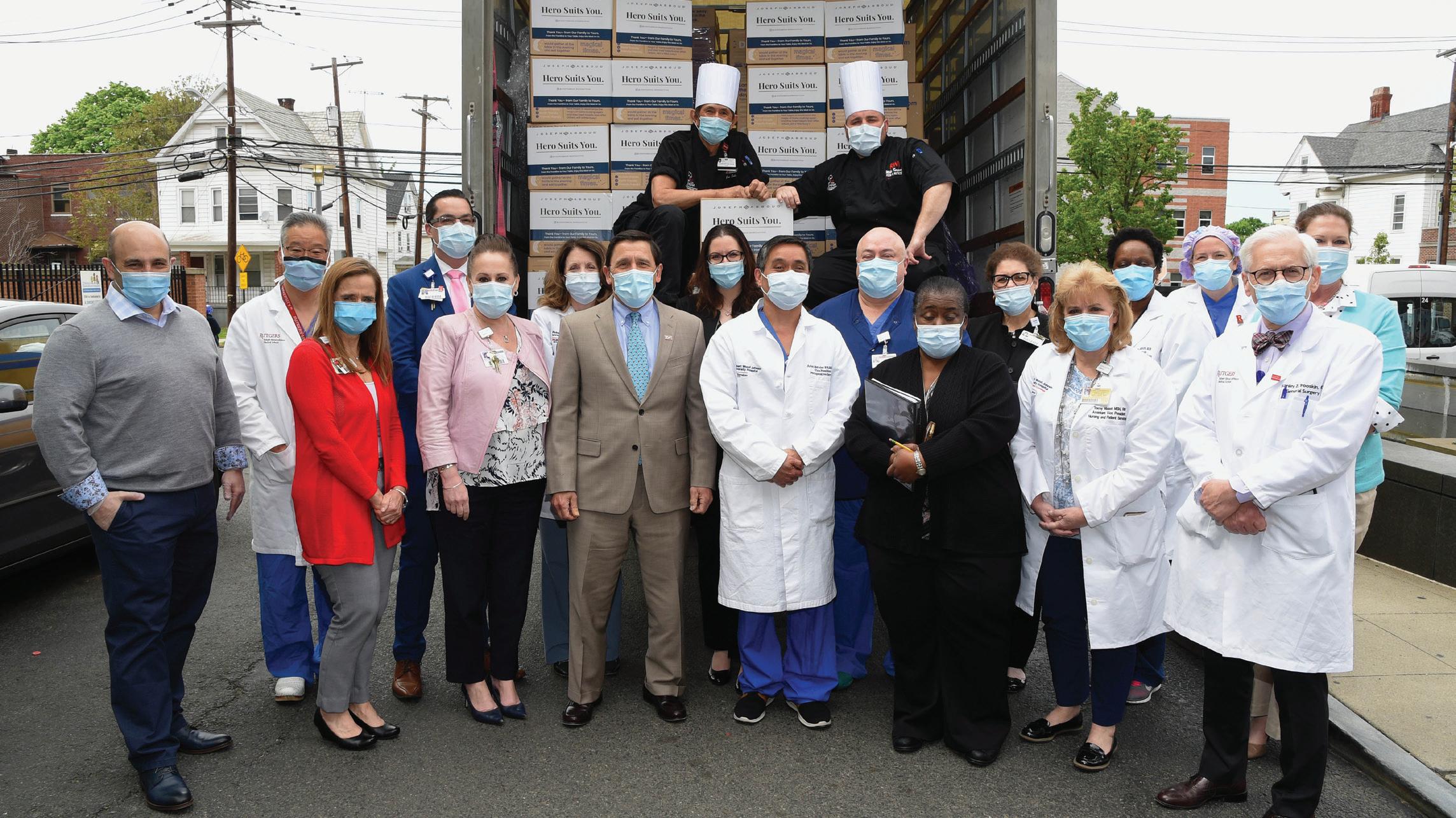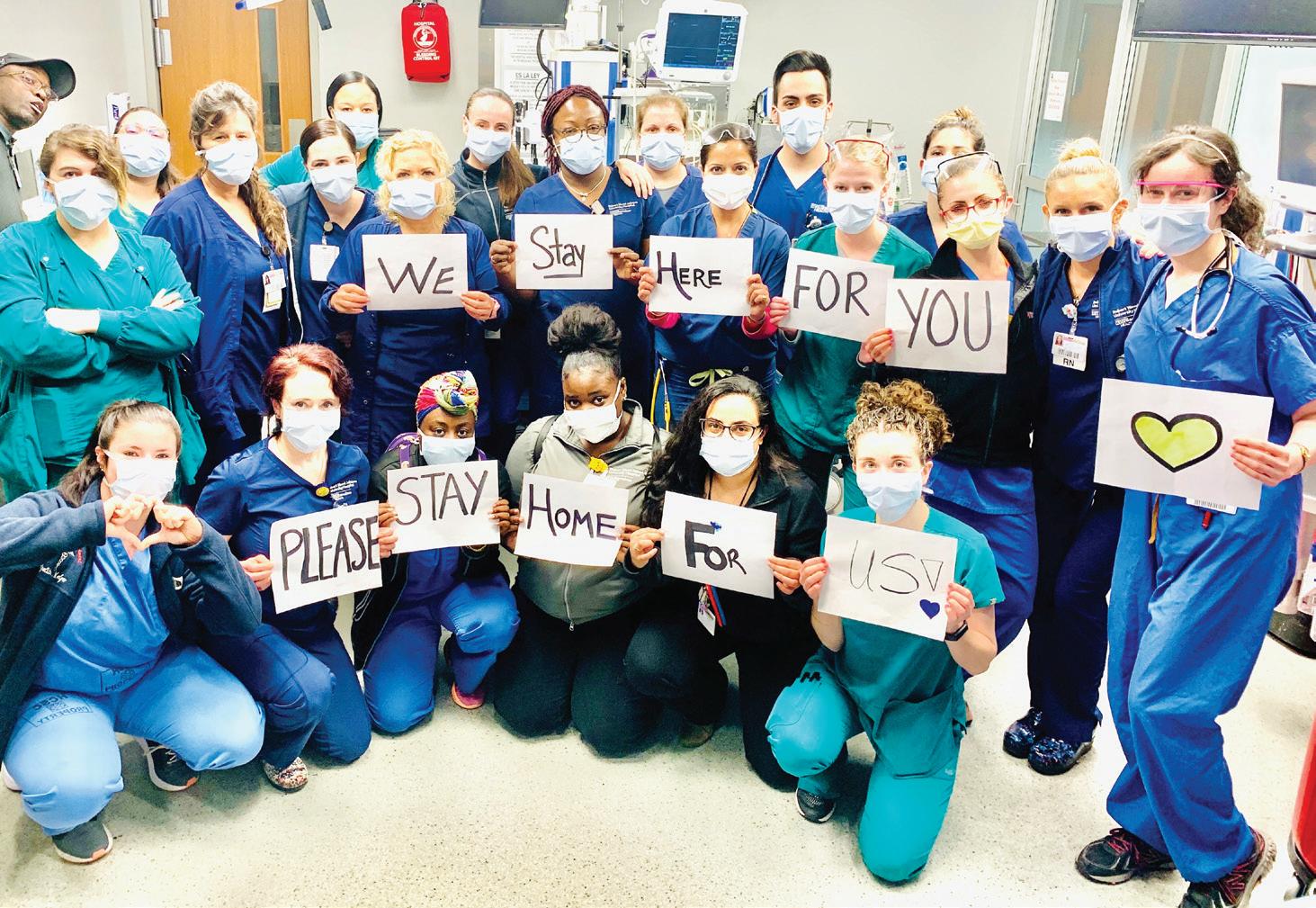AN UNFORGETTABLE
HEART IN THE THICK OF THE COVID-19 PANDEMIC, A MIRACLE HEART TRANSPLANT SAVES A LIFE.
D
ashawn Womack is thankful to be alive. Diagnosed with nonischemic dilated cardiomyopathy, the Trenton resident’s heart was failing, unable to pump blood properly throughout his body. This greatly restricted the 34-year-old’s ability to perform day-to-day activities—he couldn’t even walk short distances without becoming profoundly short of breath. In January, as his condition affected Healthy Together
| 18 |
NB_PatientStory_Covd19_Final.indd 18
his liver and kidney functioning, he was transferred to Robert Wood Johnson University Hospital (RWJUH) in New Brunswick. There, he was evaluated and placed on the heart transplant list. The multidisciplinary team that treated him was led by Deepa Iyer, MD, Heart Transplant Program Director specializing in Advanced Heart Failure and Transplant Cardiology; Hirohisa Ikegami, MD, Surgical Director of the Heart Transplant
Program; and Mark Russo, MD, MS, Chief of the Division of Cardiac Surgery and member of RWJBarnabas Health Medical Group. In early March, Dashawn’s condition became more critical. He suffered from repeat episodes of life-threatening cardiac arrhythmias. To avert a sudden cardiac death, Dr. Ikegami and the team at RWJUH placed Dashawn on two life support devices: extracorporeal membrane oxygenation (ECMO), which temporarily takes over the work of the heart and lungs, and the Impella, a ventricular assist device (VAD) that helps the heart pump blood. Doctors hoped that, together, these two devices could do the work of Dashawn’s heart and lungs until a donor heart became available. “ECMO is the most aggressive form of
COVID-19 Special Issue
6/3/20 8:40 AM












